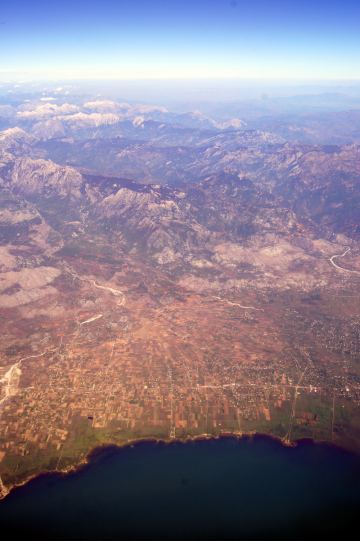Transboundary biodiversity conservation
There are thousands of kilometres of land and maritime boundaries seperating countries from their neighbours. About one-third of all terrestrial high-biodiversity sites straddle national land borders. With this background, there is a high need for neighbouring states to collaborate in conservation. CEEM supports various transboundary initiatives and various projects were and are dedicated to cross-border regions. They include for example the Eastern Carpathians (Ukraine, Moldavia, Romania, Slovakia), the Western Balkans (Albania, Kosovo, Montenegro, Macedonia, Greece), the Altai Mountains (Russia, Kazakhstan, Mongolia, China) or also the European Beech Forest Network.
Eastern Capathians
In 2017, CEEM worked together for the first time with Ukrainian, Romian and Moldovan partners in the DAAD-funded project "Transboundary cooperation for ecosystem-based sustainable development as contribution to conflict prevention in Eastern Europe", which in 2018 was followed by the project "Sustainably securing relevant ecosystem services through international cooperation as a contribution to conflict prevention and regional stabilisation in Eastern Europe". In 2019, this cooperative process continues in the course of the project: "Transboundary Cooperation in Teaching and Practice".
Western Balkans
CEEM has been active in the Balkan area since 2013. Together with partner universities from Shkodra, Tirana, Prishtina and Podgorica cooperative transboundary learning opportunities were developed to support ecosystem management and transboundary conservation. One core activity was the provision of an international course "Adaptive Conservation Management in the transboundary Bjeshket e Nemuna/Prokletije Mountain Area". In 2016, activities continued, among others, with staff exchange. Lecturers from Albania, Kosovo and Macedonia participated in a block module on "Adaptive Conservation Site Management" provided in Eberswalde. Theereafter, fruitful cooperation with the partners has been consolidated since 2017 with the implementation of an annual summer school for students and teaching staff. In addition to deepening experiences with the Open Stadards for the Practise of Conservation, the project activities more and more focused on the consideration of UNESCO Biosphere Reserves as model areas for sustainable ecosystem management:
Summer School 2019: UNESCO Biosphere Reserves for transboundary ecosystem management and conflict prevention at the Bjeshket e Nemuna/Prokletije Mountain region (Kosovo/Montenegro),
Due to the travel restrictions to contain the Coranavirus pandemic, in 2020 the DAAD Summer School had to be cancelled. As an alternative, CEEM and its partners put together two digital packages
of measures, which both address the main topics of the project and also contribute to the fulfilment of the original project goals.
A. Integration of Conservation Standards into academic teaching and research,
B. UNESCO Biosphere Reserves as model sites for sustainable development.
All projects in the Western Balkans have been funded by the German Academic Exchange Service (DAAD).
Further transboundary conservation activities include:
- European Beech Forest Network
- Altai Transboundary Biosphere Reserve
- Altai Mountains: Nature Conservation across borders
- Korean Baekdu-daegan conservation.



